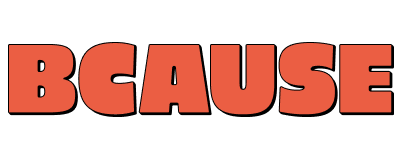In the 2022 Hunger Count report released by the Food Bank of Canada, it found that in March 2022, “there were nearly 1.5 million visits to food banks in Canada, the highest March usage on record even though unemployment rates were at their lowest on record in the same month.”
-Food Banks Canada

Scarier yet is their dire warning about the 2023 numbers where they state that while unemployment is at 5.3%, the lowest it’s been on record since 1976, “food bank visits are the highest they have ever been”.
The causes of these staggering numbers are directly connected to the general cost of living crisis. Rising inflation, social program funding not keeping up to needs, and post-pandemic benefits ending are just some of the factors that are contributing to food insecurity in Canada. More specifically, Food Bank Canada notes that food costs, housing costs, and low provincial social assistance rates are the main pain points for those accessing their services across the country.
There are countless organizations that are working to address these complicated and interwoven issues. One of the areas of focus is providing something called “food security”.
Food Security is the blanket term that refers to a state in which everyone in a region has access to sufficient, reliable, safe, and nutritious food to meet their individual dietary needs.
Food Security is often broken down into four sub-sections or pillars:
- Availability: an adequate supply of food, both quantity and variety, to provide proper nutrition.
- Access: People should be able to afford the food they require and can physically access it.
- Utilization: The food that is available and accessible should be nutritious and safe to consume.
- Stability: To achieve food security, an individual needs to be able to meet the above pillars consistently without sudden disruptions or fluctuations.
Are There Local Victoria, BC Examples of Food Security?
One awesome example of a local organization doing their part to address the needs in Victoria is Rainbow Kitchen, a local community kitchen, that serves hot breakfasts and lunches every weekday. The Victoria Native Friendship Centre’s weekly lunch and hamper programs are another. These reliable programs are foundational to creating food security for thousands of people in just the Greater Victoria area alone every month.


What Can We Do To Create Food Security?
We should all be striving to work to address food insecurity in our communities with the expressed goal of everyone enjoying food security — all citizens having safe and reliable access to nutritious and affordable food. Although there are organizations working on this vision, there is more to be done as a community. Local governments need to provide unrestricted funds to keep these essential services open. Additionally, Local Governments need to enact food security laws that mandate that all unsold food needs to be donated. While not perfect, France enacted an anti-food waste law back in 2016 which mandated that unsold food could not simply be thrown away. The goal of the law is to reduce food waste in the country by 50% by 2025 and target all aspects of the food chain. Imagine a world where everyone didn’t need to worry about where their next meal was coming from.
As an individual, you can also do your part by voting for representatives who deem food security a high priority but by also using your dollars to support local farmers and vendors in your community.
At BCause we believe in food security. We donate any unsold products to Rainbow Kitchen and, through the BCause Box Program, donate 5% of every box sold to help them on their mission to feed the community.


